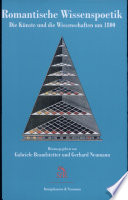 The Sanskrit language, whatever be its antiquity, is of a wonderful structure; more perfect than the Greek, more copious than the Latin, and more exquisitely refined than either, yet bearing to both of them a stronger affinity, both in the roots of verbs... The Sanskrit language, whatever be its antiquity, is of a wonderful structure; more perfect than the Greek, more copious than the Latin, and more exquisitely refined than either, yet bearing to both of them a stronger affinity, both in the roots of verbs...  Works - Page 248by Sir William Jones - 1807Full view Works - Page 248by Sir William Jones - 1807Full view - About this book
 | Donald R. Kelley - History - 2008 - 440 pages
...historical inquiry. The central insight was expressed by William Jones in 1786 in this way: "The Sanskrit language, whatever be its antiquity, is of a wonderful...of them a stronger affinity, both in the roots of the verbs and the forms of the grammar, than could possibly have been produced by accident; so strong,... | |
 | Robert Eric Frykenberg, Alaine M. Low - Religion - 2003 - 436 pages
...His words were to become the basis for studies in comparative linguistics. Jones said: The Sanskrit language, whatever be its antiquity, is of a wonderful...than either, yet bearing to both of them a stronger affmity, both in the roots of verbs and in the forms of grammar, than could possibly have been produced... | |
 | Sharada Sugirtharajah - History - 2003 - 196 pages
...poets and philosophers such as Homer, Plato, and Pindar. Jones speaks of the Sanskrit language as being "more perfect than the Greek, more copious than the Latin and more exquisitely refined than either" (ibid.: 26). 2S Jones' representation of Hinduism needs to be seen in the light of his predetermined... | |
 | Narendranath B. Patil - Philosophy - 2003 - 432 pages
...1786, William Jones sparked off the discovery of comparative and historical philology: "The Sanskrit language, whatever be its antiquity, is of a wonderful structure; more perfect than Greek, more copious than the Latin, and more exquisitely refined than either, yet bearing to both of... | |
 | Joseph Lennon - Literary Criticism - 2004 - 524 pages
...and first convincingly demonstrated a linguistic connection between India and Europe: The Sanscrit language, whatever be its antiquity, is of a wonderful...stronger affinity, both in the roots of verbs and in the forms of grammar, than could possibly have been produced by accident; so strong indeed, that no philologer... | |
 | Kirsten Malmkjær - Foreign Language Study - 2002 - 696 pages
...the same origin, which perhaps no longer existed. In his words (in Lehmann 1967: 15): The Sanskrit language, whatever be its antiquity, is of a wonderful...stronger affinity, both in the roots of verbs and in the forms of grammar, than could possibly have been produced by accident; so strong indeed, that no philologer... | |
 | Carl J. Becker - Anthropological linguistics - 2004 - 413 pages
...discipline of linguistics. In the words of Jones: The Sanscrit language, whatever be its antiquity, is a of a wonderful structure; more perfect than the Greek,...stronger affinity, both in the roots of verbs and in the forms of grammar, than could possibly have been produced by accident; so strong, indeed, that no philologer... | |
 | Lia Formigari - Philosophy - 2004 - 270 pages
...India Company and the author of a Persian grammar. He described Sanskrit as a language characterized by a 'wonderful structure', more perfect than the Greek,...stronger affinity, both in the roots of verbs and in the forms of grammar, than could possibly have been produced by accident; so strong indeed, that no philologer... | |
 | Gabriele Brandstetter, Gerhard Neumann - Arts - 2004 - 440 pages
...über die Klarheit der Sanskritsprache von William Jones verstärkten die Idealisierungen: The Sanskrit language, whatever be its antiquity, is of a wonderful...refined than either, yet bearing to both of them a strenger affinity, both in the roots of verbs and in the forms of grammar than could possibly have... | |
 | Biblioteca Nacional (Portugal) - China - 2004 - 146 pages
...hebraico, até chegar a ser tido como a língua original e perfeita: «The Sonskrit longuage, whutever be its antiquity, is of a wonderful structure, more...Latin and more exquisitely refined than either»". E o feitiço volta-se inesperadamente contra o feiticeiro: com a descoberta de textos religiosos anteriores... | |
| |